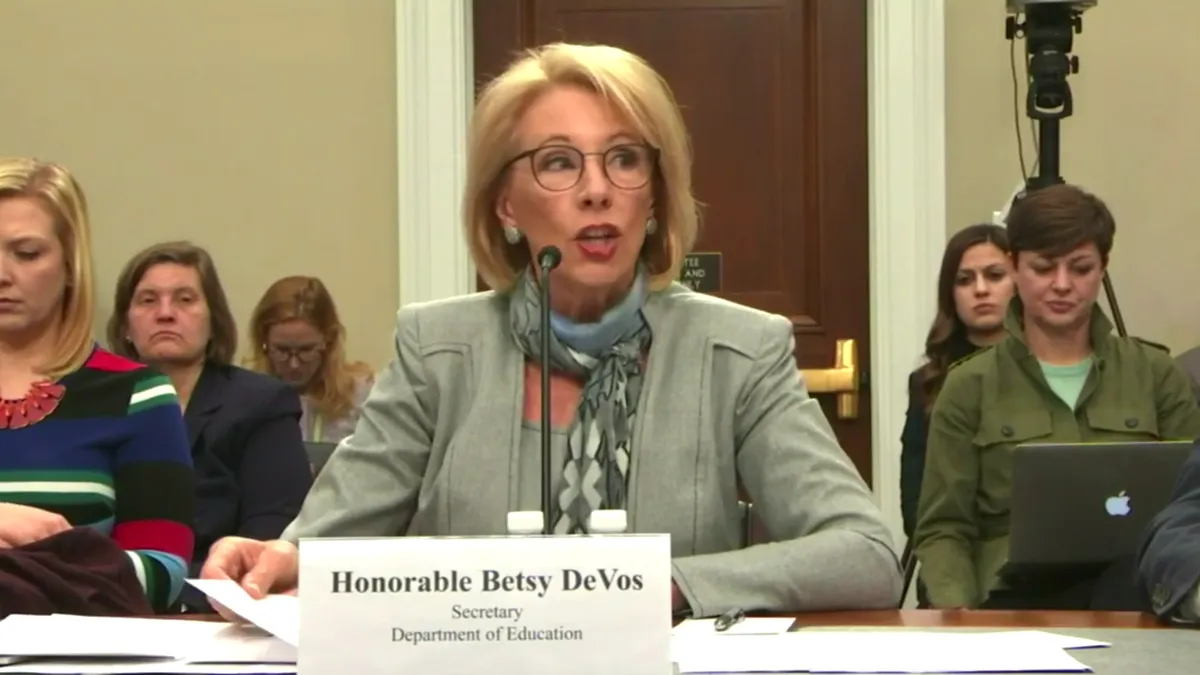In a House Committee on Appropriations hearing Thursday, representatives grilled U.S. Secretary of Education Betsy DeVos on her proposed changes to the Education Department's Civil Rights Data Collection, such as eliminating racial and ethnic differentiation in data on preschool suspension.
Lawmakers heatedly expressed concerns that dropping such distinctions in discipline data among preschoolers would enable existing school discipline trends that disproportionately affect black and brown students.
“The ability to track this data is critical,” Rep. Barbara Lee (D-California) said in the hearing. “These are children who don’t get a head start because they’re kicked out of school before they even enter kindergarten.”
In 2018, ED also eliminated Obama-era guidance that directed schools to reduce racial disparities in disciplinary practices and find alternatives to school suspension.
That move, combined with a potential lack of data collection, Lee said, would be a “double whammy” for students of color.
“You eliminated the data collection that could help us solve this problem,” said Rep. Katherine Clark (D-Massachusetts).
In previous years and also in the latest budget request, the committee directed DeVos to submit a report detailing school discipline in preschool and K–3 classrooms broken down by subgroups that would highlight disparities. It also directed ED to submit recommendations given to schools for alternative interventions.
Those requests, lawmakers said, have gone unheeded in previous years despite DeVos’ repeated promises to follow through.
“A report does not solve a child’s problem,” DeVos rebutted, adding “the bigger issue” instead of addressing racial bias is allowing children to “pursue an education that would unlock their greatest potential”
When further pressed on the issue, DeVos said she would rather discuss the lack of achievement and opportunity in the public school system.
But other lawmakers are concerned that even DeVos’ push for the Education Freedom Scholarships program doesn’t provide protections for marginalized students who could be turned away from private schools. The tax credit program would provide incentives for donations to scholarships for private schools.
“Many schools have unique [and] different missions,” DeVos said in response to lawmakers pointing out the program’s lack of a nondiscrimination requirement.
But the chair of the subcommittee, Rep. Rosa DeLauro (D-Connecticut), made it clear that the committee is "not going to stand by and watch states discriminate against our children,” saying she’s concerned DeVos is “confusing essential protections for children as burdens.”
As in previous years, Congress is likely to disregard President Donald Trump's proposed education budget and its significant changes to key programs and protections.













